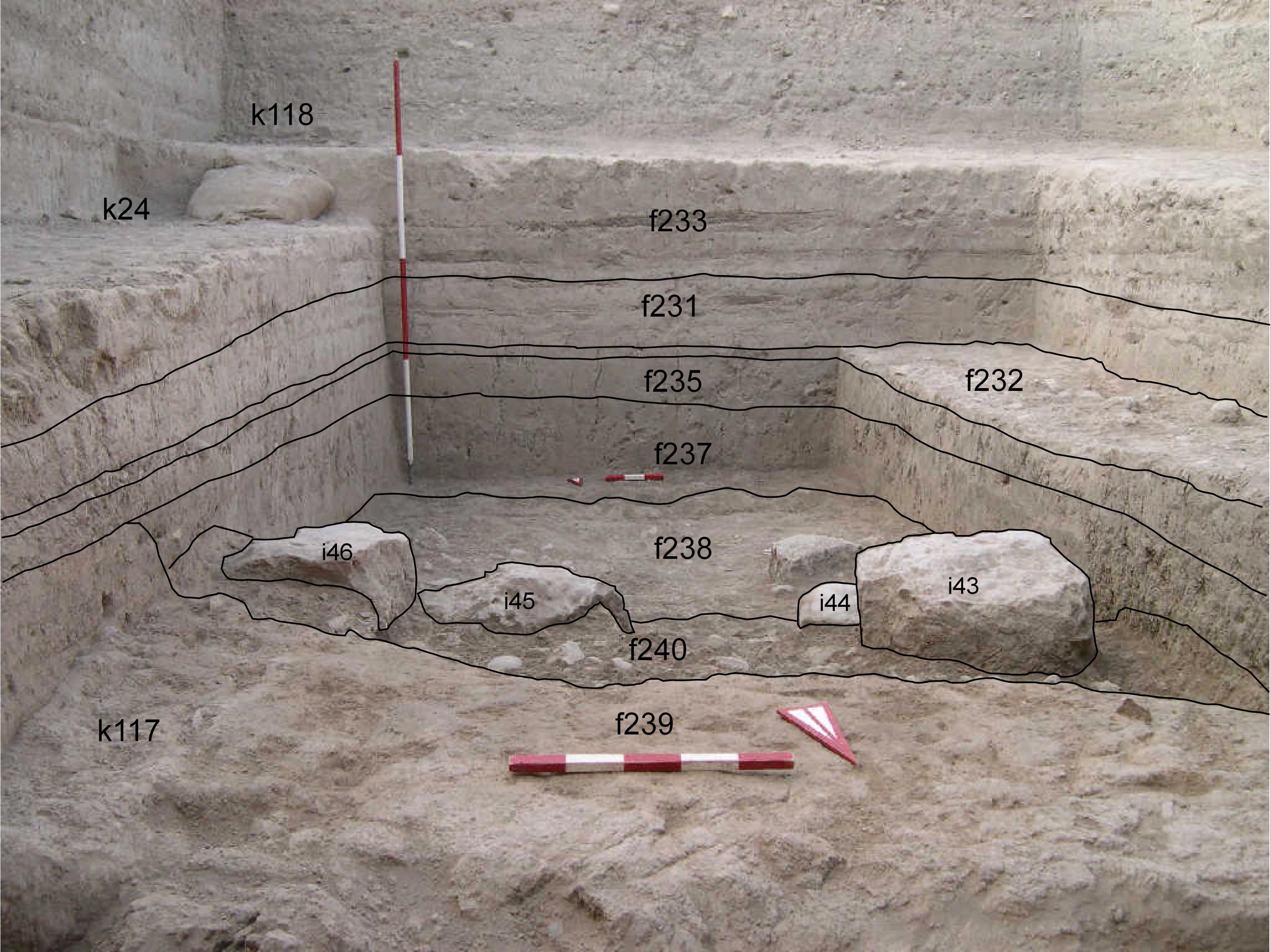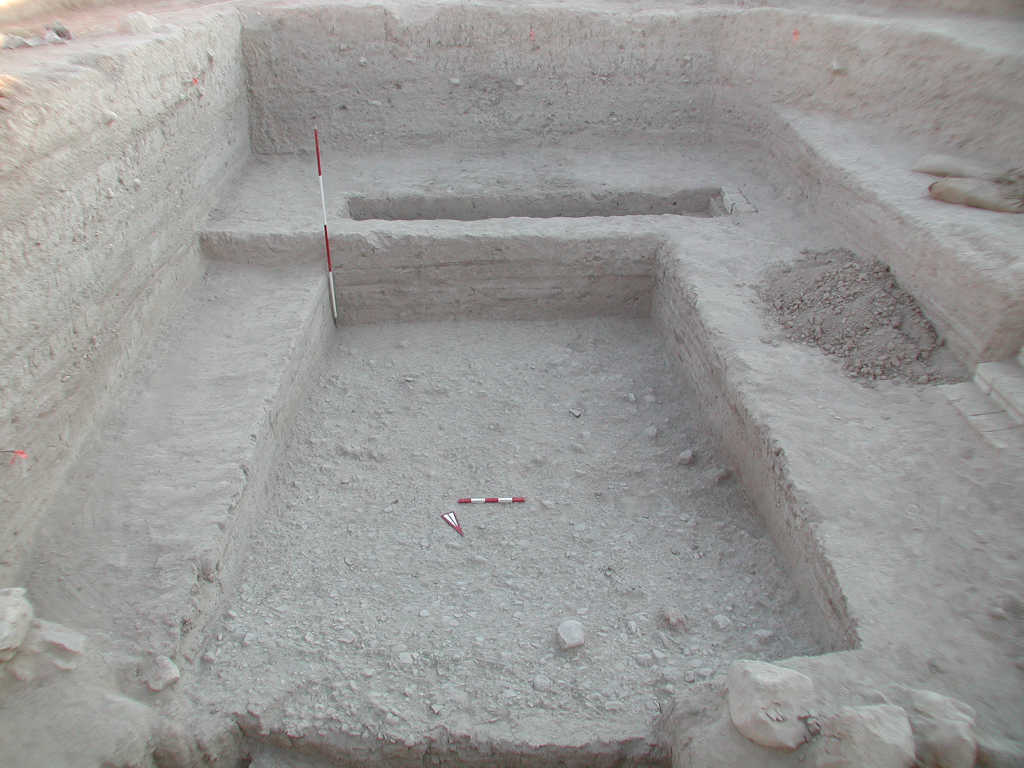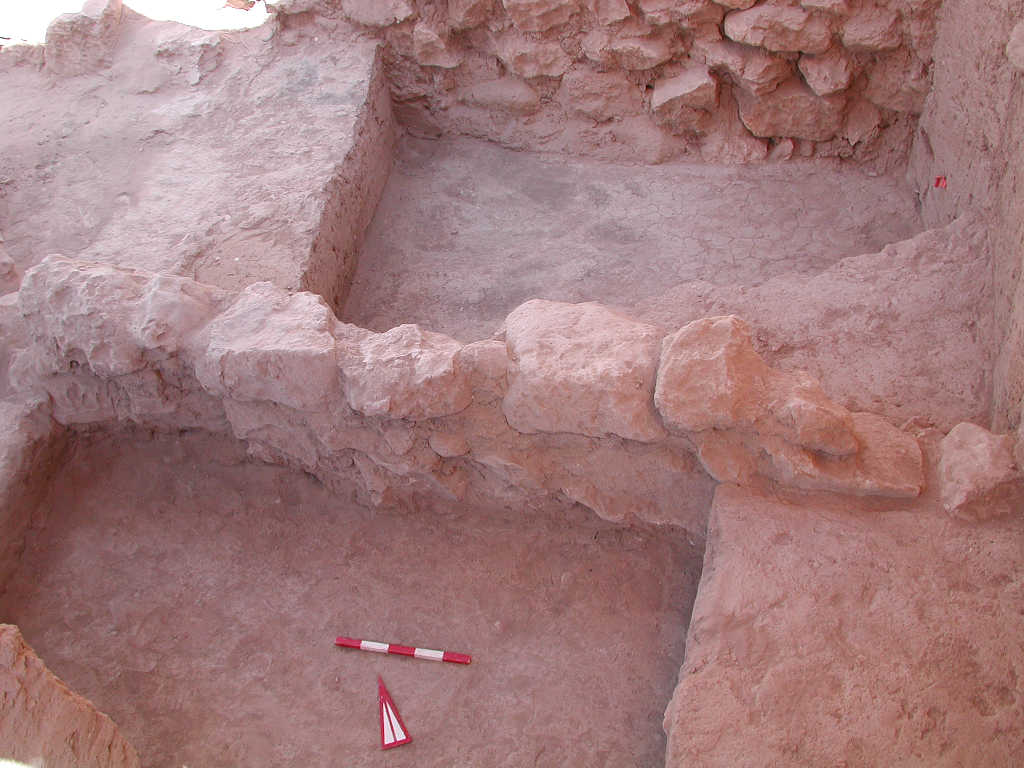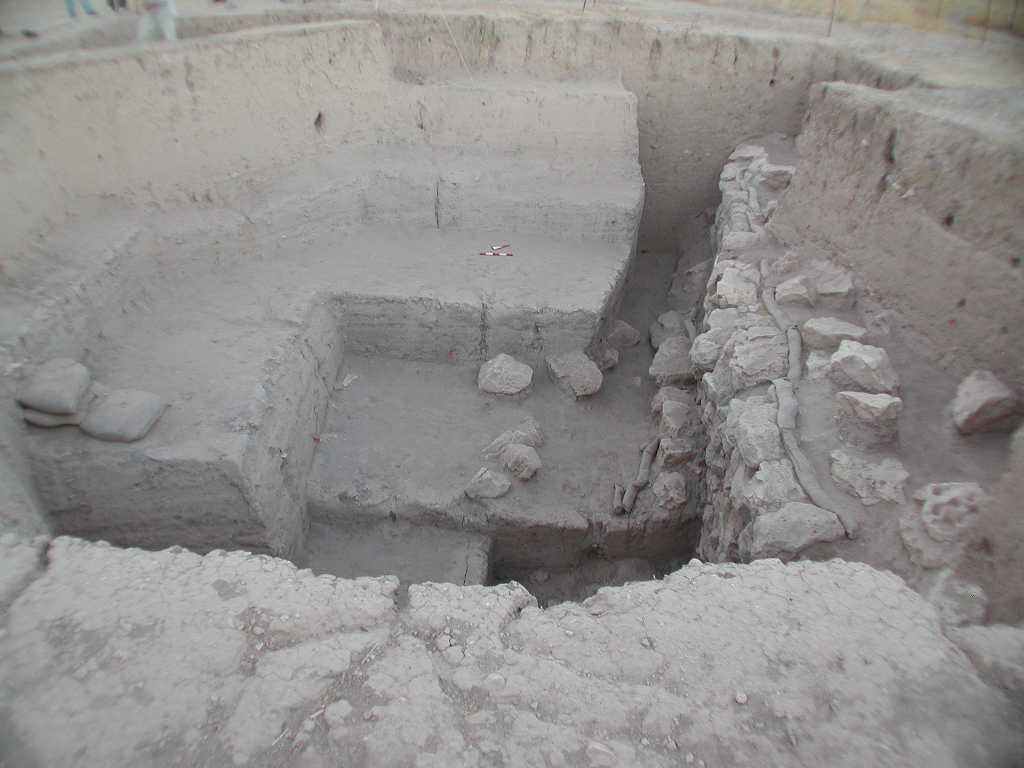Back to top: Phase 7fJ1A within Unit J1
Stratigraphy
TEXT TO BE WRITTEN
Back to top: Phase 7fJ1A within Unit J1
First accumulations
Almost immediately after the first curtain wall was built and the pavement started to be used, the area started to fill up with very soft brown accumulations (^acc4), probably evidence of a first short abandonment or less care of the area. Right on top of the pavement a North-South alignment of stones (f328) is interpreted as a water barrier to divert the water coming from West.
Back to top: Phase 7fJ1A within Unit J1
Second Pavement and curtain walls
In the same phase another important sherd and pebble pavement was built (even if less compact that the previous one) together with a low screen wall (^curt2). This wall is the best built between the three found in J1. It seems starting next to the revetment wall to the West and going to the East it goes South until to be parallel to the revetment wall (about to meters to the south). We are pretty sure this wall follows the surface of the second escarpment that was eroded and sharply stepped during this period. So the screen wall and the pavement forms the new surface onto to walk and the boundary to the north, slighty south of the EDIII Revetment wall, still high and impressive. At the end of the period the accumulations started to fill the Plaza, probably because of a blockage of the southern end of the Plaza itself.
Back to top: Phase 7fJ1A within Unit J1
New accumulations and new bench
The accumulations (^acc1) show layers highly natural and layers with more sherds and inclusions probably washed inside from the surrounding areas. Another curtain wall, similar to a bench constructed with very large stones was built right at the base of the revetment wall, sitting on the top part of the EDIII material belonging to Second Escarpment.




Back to top: Phase 7fJ1A within Unit J1
Typology
The accumulations contain mixed ceramics but primarily Mittani types.
Back to top: Phase 7fJ1A within Unit J1